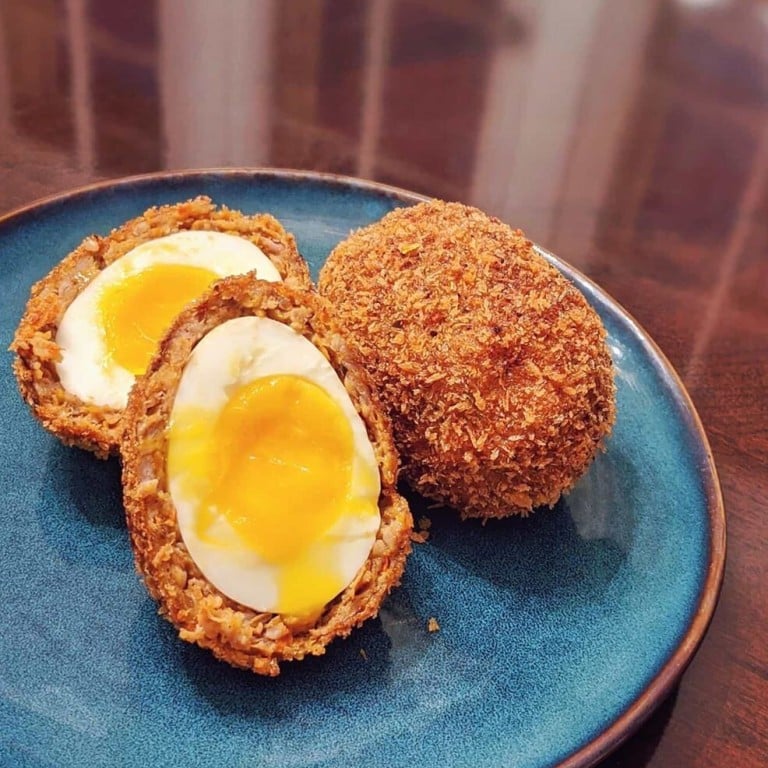Are Scotch eggs actually Indian? Mughal curry nargisi kofta is awfully similar to the breaded fried eggs Brits claim were born in Yorkshire

‘What is pub food in the UK is an actual delicacy in India’ ... a curry of Mughal origin, brought home by the British Raj, or an egg wrapped in fish paste from Whitby? The origins debate of the humble Scotch egg rages on
From the time of the Mughals to the British Raj, India’s culinary map has been dotted with dishes that have their roots all across the globe.
It hasn’t all been one-way traffic though, with the British “recreating” a few recipes from the Indian kitchen – like the railway mutton curry and mulligatawny soup. One of their more glorified yet debatable interpretations is the nargisi kofta, popularly known in the West as Scotch eggs. A Scotch egg is a boiled egg enclosed in a minced meat patty and deep fried – usually served cold though the original recipe calls for gravy – a nod to its Indian roots.
What is pub food in Scotland and UK is an actual delicacy in India
Michelin-starred chef Graham Campbell says: “According to Culinary Delights of Yorkshire, they originated in Whitby, Yorkshire, England, in the 19th century, and were originally covered in fish paste rather than sausage meat. They were supposedly named after William J. Scott & Sons, a well-known eatery which sold them, and they originated in England. The dish does not use gravy and it’s made with boiled eggs wrapped in minced pork, herbs and spices, and coated in breadcrumbs and deep fried and more often served cold. Supposedly, legend says that it may have come from nargisi kofta but no one really knows.”
Certainly the Scotch egg is uncannily similar to nargisi kofta – said to be named after narcissus, a winter flower grown in India (the egg yolk and white if cut into quarters resembles the flower). An Awadhi dish, according to 20th century food historian Alan Davidson it was a result of an experiment by an adventurous khansama (cook) who took a hard-boiled egg, enclosed it in mutton mince and deep fried it, giving birth to a curry which is now a rare find in the country.
Vijay Malhotra, the complex executive chef of ITC Sonar and Royal Bengal, states: “Nargisi kofta is a Mughlai dish. It all started when Babur invaded India in the 15th century. In fact the Sushruta Samhita also mentions the use of ground meat. Mughals have had the highest impact around Awadh and Hyderabad so the dish could originate at either of these two cities and travel up north or vice versa. But because the families are now nuclear, no one has the time to make a dish this intricate. What is pub food in Scotland and UK is an actual delicacy in India.”
The word “kofta” is Persian and it translates to meatball, underlying the fact that it was brought to India by the Mughals. Food writer Alan Davidson also states that once the English had tasted this curry, they fell in love and tried to recreate it. However, making the sauce was a tedious task for them so they subbed it for hot sauce, which remained a part of the dish as a gravy, a more general habit they picked up from their days in India.